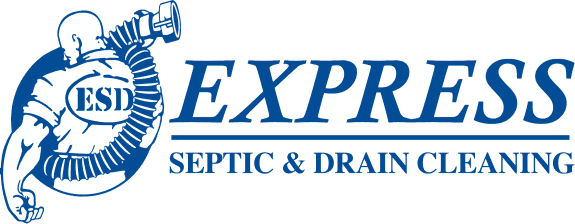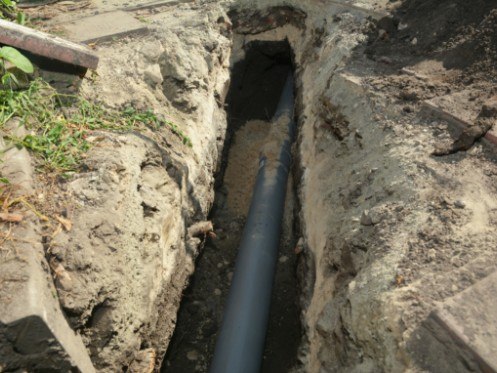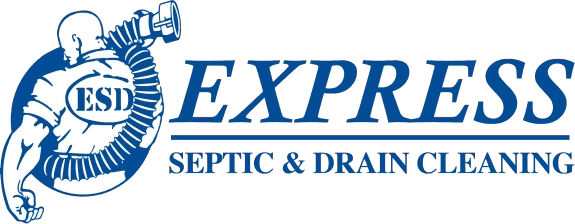Rural areas are full of homes with septic systems. If you live in a city, you likely have a sewer line that transfers any waste from your plumbing to the town’s sewer system. Whether you live in a small town or a rural community, you may have a septic system that comes with a variety of possible perils. Find out what the system does, some of the issues you might face, and whether your homeowners insurance policy will cover you.
How Does a Septic System Work?
You can live in your home for years without knowing how your septic system works. The system consists of both a drain field and a septic tank. Every time anyone flushes waste through your plumbing system, it moves through the pipes and into the tank. Some things, such as grease, float along the top, while solid waste sinks to the bottom of the tank.
A septic tank moves the liquid waste through special pipes that slowly push it into the drain field. The system may have chambers or other elements that prevent all of the waste from leaking out at the same time and flooding your yard. As long as the system works properly, you should not have any problems.
Septic System Failure
Before you call your insurer to see if the company covers your system, you should get an idea of why it failed. A common reason for problems to appear is that you send too much water through the system. You need a tank that can hold a minimum of 110 gallons of wastewater per person in your home. If you have a family of five, the tank must hold 550 gallons or more. When the tank cannot keep up with the water, it can flood your yard.
Failure can also happen if you fail to maintain the system. Most septic tanks need to be pumped at least once every three to five years. Skipping this step allows the tank to fill quicker and force wastewater onto the drain field. You also need to avoid flushing certain materials and items down your drains like cleaning or beauty wipes, toys, and condoms.
It is best to call the pros for help if you think you have a broken pipe in the ground. Pipes can break if a large vehicle crosses the drain field. Heavy pressure from other objects can also destroy the pipes. Additionally, tree roots need just a tiny spot to enter the pipes. Once there, they will keep moving and growing as they seek out food and water. The root can grow so large that it clogs the pipe and forces waste back into your home.
Does Homeowners Insurance Cover Septic Problems?
Your homeowners insurance should cover septic system damage as long as your policy includes coverage for other structures. Other structures often include the fence that surrounds your backyard and your swimming pool. You can file a claim if you can prove that the problem did not occur due to neglect on your part. Insurers consider neglect as skipping routine maintenance. The company may not cover the system if you saw signs of a problem and ignored them.
When you file a claim, you need to show that the damage occurred due to a reason included in your policy. Storm damage is one example. If you can prove that the tank overflowed because water from a recent storm got into it, your insurer should pay for the needed repair.
Some of the other reasons that insurance will cover the damage include:
- Smoke or fire
- Explosion
- Heavy sleet, snow, or ice
- Frozen pipes
Insurers often allow you to add coverage for service lines and water backups. Owners often choose $10,000 to $20,000 in service line protection. This pays for damage to the pipes that transfer water to the tank. Water backup coverage is often quite affordable. It pays for flooding in your home. When your sewer tank is too full and sends water back inside, it can spill over your toilet bowls and come through other drains. Filing a claim helps you get money to fix any water damage caused by the backup.
Coverage Limits
Keep in mind that your policy limits the amount of financial help you get based on your coverage. Most insurers only pay a maximum of 10% of the total policy’s value for septic systems. If you have $250,000 in total coverage, the insurer will only pay up to $25,000 for a new septic tank or system. You’re responsible for any amount above this. While replacing some of the pipes doesn’t cost much, replacing the entire system can cost much more.
What Does Insurance Not Cover?
The list of things that insurance does not cover is much longer than what it does cover. One example is damage caused by flushing certain materials into the septic tank. Those materials include most household chemicals as well as grease, oils, and paint. It will not pay for damage caused by tree roots because this is a preventable problem. You also do not get compensation for septic issues caused by poor or improper drainage.
If your system experiences problems because you or someone else drove over the tank, your homeowners insurance will not pay for the required repairs or work. You should contact your auto insurer to see if the company will cover it. For damage caused by other drivers, get their insurance information. You can file against their business or auto insurance.
Homeowners policies usually don’t pay for flood damage. If you live in an area where floods can happen, you can purchase flood insurance. Floods can force too much water into the tank and cause it to release more wastewater into your drain field. This can damage both your yard and any nearby plants as well as your home if it’s close to the field.
How to File a Claim
Filing a claim for damage to your septic system requires a few steps. Start with a call to your insurer. The company will send an adjuster to your home to look at the damage and determine what caused it. Once the adjuster examines the situation, your insurance company decides if your policy covers the system and how much you should get. Keep in mind that it can take time for the insurance company to pay you for the damages.
Get Septic System Help in a Hurry
At Express Septic & Drain Cleaning, we know the dangers that septic tank problems can pose to your family and home. No one wants to smell stinky wastewater and sewage in their house. Our team of experts provides both repair and routine maintenance services in Nampa, Caldwell, and the surrounding areas. We also offer enzyme treatments. If you are experiencing problems, contact Express Septic & Drain Cleaning today to see how we can work with your insurer to give you the peace of mind you deserve.



